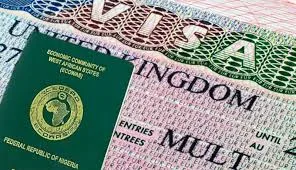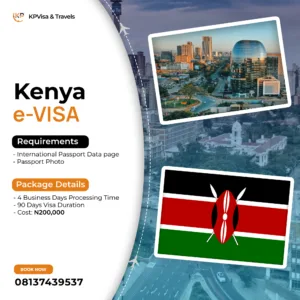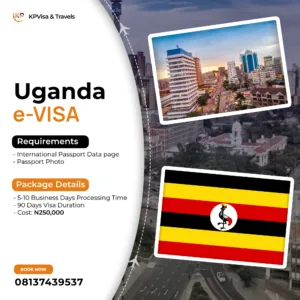“Did the UK just ban Nigerians from getting visas?”
”Why did my UK visa get refused even with a sponsor?”
”What’s this new eVisa rule everyone is talking about?”
If you’ve found yourself asking these questions lately, you’re not alone.
In recent months, thousands of Nigerians have experienced delays, confusion, or rejections with their UK visa applications. And now, with the latest UK visa policy updates as of October 2025, many are unsure what to expect or how to proceed.
That’s why we’ve created this complete, up-to-date guide to walk you through:
📌 Read More
- The latest UK visa policy changes for Nigerians
- What categories are affected
- How these changes impact you
- And what steps to take to avoid visa denial
Whether you’re applying for a UK student visa, work permit, visit visa, or are simply curious, this is your final call to understand what’s changing and act fast.
First, Let’s Talk About the Numbers
- Nigeria made up 6% of all global UK visit visa applications in 2024
- Despite high demand, rejection rates for Nigerian visitors remain one of the highest in Africa
- According to The Guardian UK, Nigerians have recently faced what some call a “silent crackdown” on visit visa approvals
Now, add in digital transformation, tighter scrutiny, and new UK government immigration targets, and it’s clear: the visa landscape for Nigerians is changing fast.
Let’s dive into the actual policy updates that went live or are in effect as of October 2025.
Key UK Visa Updates for Nigerians – October 2025
1. e-Visas Officially Introduced for Nigerian Study & Work Applicants
The UK has gone digital, at least partly. As of July 15, 2025, Nigerians applying for UK Student Visas, Skilled Worker Visas and Other long-term visas are now being issued digital e-Visas instead of physical stickers in their passports (called vignettes).
Here’s what this means:
- No more visa stickers inside your passport for these categories
- You must create a UKVI account to view, store, and share your eVisa status
- Biometrics are still required — you must still go to a UK Visa Application Centre (VAC) to submit fingerprints and photos
Pro Tip: Your eVisa is now your legal entry and stay document. You’ll need it to board your flight, rent accommodation, or prove your legal status in the UK. Learn how to manage it early.
📰 Similar Posts
2. Visit Visa Scrutiny Increased for Nigerian Applicants
In June 2025, multiple UK media sources reported a significant rise in visit visa refusals for Nigerian applicants, even when applicants had valid sponsors, previous UK travel history, strong documentation.
The UK Home Office is reportedly under pressure to reduce overall migration numbers concerns over visa overstays and fraudulent applications are prompting stricter assessments, particularly for visitors. If you’re applying for a UK visit visa from Nigeria, your documents must be airtight — now more than ever.
3. UK Reopens Visa Centres in Enugu & Port Harcourt
Great news for applicants outside Lagos and Abuja! The UK has reopened its Visa Application Centres in Port Harcourt and Enugu. These centres now allow you to Submit biometrics locally, use services like “Keep My Passport” (so you can travel while your visa is processing) and avoid long-distance travel to Lagos or Abuja.
Use this if you’re in the southeast or south-south. Booking your biometric appointment early is key.
4. More Emphasis on Digital Immigration
In line with global trends, the UK is phasing out physical immigration documents, encouraging all visa holders to transition to online immigration status management and developing a system where all visas, from student to visitor, will eventually be 100% digital.
By early 2026, this system may expand to visitor visas as well. That means everyone even tourists may soon be required to manage UK immigration status digitally.
Be proactive: Learn how to use the UKVI “View and Prove” tool to share your immigration status with schools, employers, and landlords.
How to Apply for a UK Visa from Nigeria
Let’s break down the current process — step by step:
- Determine Your Visa Type
- Create a UKVI Account
- Gather Your Documents
For students: include CAS, tuition receipts, and TB test results For workers: include Certificate of Sponsorship (CoS)
Why Nigerian Applicants Get Refused (And How to Avoid It)
Common UK visa refusal reasons for Nigerians in 2025:
- Funds not traceable or poorly explained
- Letter of invitation unclear or unverifiable
- Inconsistencies in documents
- Weak “ties to home country”
- Suspicion of overstay or intent to immigrate
How to beat this:
- Use your own bank account
- Show steady income and regular deposits
- Provide a compelling cover letter explaining your trip
- Include employment or business registration proof
- Avoid using agents that promise “guaranteed approvals” (they lie)
Your Next Move Starts Now
Let’s face it, UK visa rules are tightening, and with digital systems taking over, you need to stay ahead or risk rejection.
Whether you’re planning to study, work, or visit the UK, make sure to know the latest visa policy for Nigerians, prepare your documents correctly and be ready for a digital-first process. Need help with your application? Confused about eVisas or document requirements?
Contact us for further enquiries. We help Nigerians like you navigate UK visa applications the right way with guidance, honesty, and a proven system.





































No responses yet